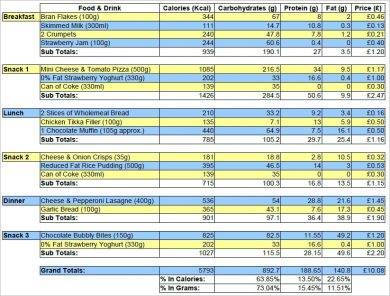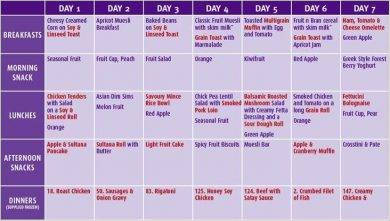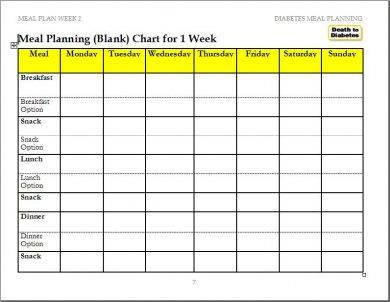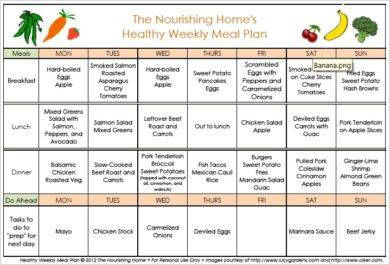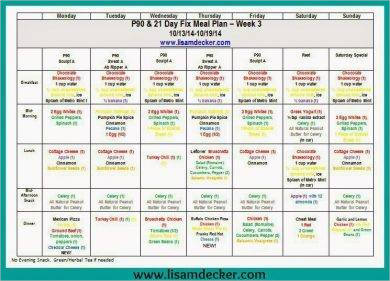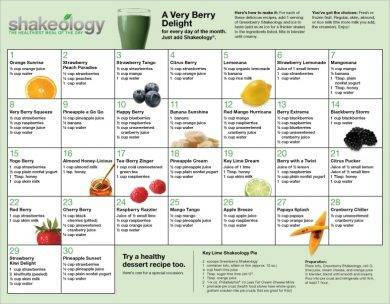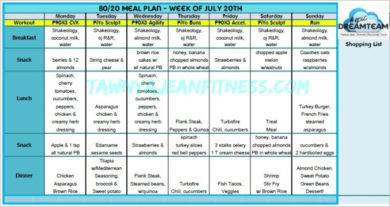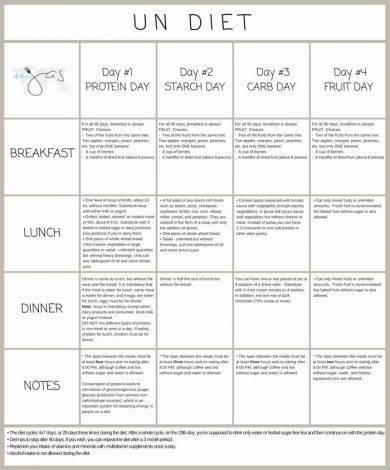9+ 90-Day Meal Plan Examples to Download
A trip to the grocery store is always fun, until you realize that you have a cart filled with bags of chips and boxes of frozen pizza, with no sign of a healthier food option, except for the pack of frozen berries you like to have for breakfast.
For anyone struggling to live a healthier lifestyle, you’re not alone. We’re all guilty of ordering takeout whenever we’re too lazy to whip up a home-cooked meal. And sadly, we’re beginning to see the consequences of our poor choices as we silently (but ferociously) zip up our jeans. Having ready-to-use meal plans designed from meal plan templates can make healthier eating much easier to follow.
There are many reasons why people refuse to change their eating habits, one of which is not knowing where to start. While following a diet plan fit for a Victoria’s Secret model isn’t exactly the most appealing choice to begin with, you might want to follow your own path to a healthier mind and body with your very own 90-day meal plan.
90-Day Daily Meal Plan Example
90-Day Diet Meal Plan Example
90-Day Healthy Meal Plan Example
The 90-Day Challenge Diet
The 90-day challenge diet is exactly what it sounds like—spending 90 days of your life, or approximately 3 months, living off a meal plan and a fitness routine to activate your mind and body. This is a diet plan that’s most suitable for individuals who aim to lose weight as opposed to just staying fit.
If you’re familiar with the popular television show The Biggest Loser, then you might get the difference between losing weight and simply building a healthy physique. It may be difficult for some people to practice at first, but with the right mind-set and attitude toward it, you’ll be “glowing” your way to the weighing scale every time. You may also see weekly plan examples.
1. What You Eat
You may want to think twice about stopping for some fries at your nearest McDonald’s, because this challenge urges you to eat more natural and less-processed food options. This includes real, whole foods that you can find at the farmer’s market or in a particular aisle of your local grocery store. You may also like work plan examples.
The plan suggests packing on supplies of healthy proteins, beneficial carbs, and healthy fats. Besides fruits and vegetables, you should also consider adding foods like poultry, lean meat, tofu, oatmeal, brown rice, avocados, and nuts to your shopping list. More fiber and water intake must also be included in your diet plan for obvious reasons. You may also check out transition plan examples.
Unfortunately, good eating habits means saying goodbye to sugary and salty snacks as well. Though there’s always room for some ice cream and a bag of Cheetos, the plan recommends followers to limit their intakes of such. Cheat days every now and then are also acceptable, as long as you don’t go as far as slacking off for a few consecutive days or so. You might be interested in risk plan examples.
2. The Meal Plan
Contrary to popular belief, going on a diet doesn’t mean skipping meals to lose weight. Keep in mind that your body requires nutrients to perform daily activities properly. People who eat once a day are likely to experience dizziness, headaches, and stomach cramps at random occasions, not to mention the likelihood of overeating in an attempt to feed one’s hunger. You may also see quality plan examples.
The 90-day challenge recommends followers to eat about four to six small meals a day. It’s similar to consuming three meals a day, except that each meal is divided into smaller portions than what you would normally have in a day. Each meal should contain a healthy mix of carbs, protein, and fat, along with some fruit with cheese or whole-wheat crackers with some peanut butter for a healthy snack option. You may also like sales plan examples.
90-Day Meal Plan Challenge Example
90-Day Meal Plan Chart Example
90-Day Meal Plan for the Week Example
90-Day Meal Plan for Weight Loss Example
The Importance of Meal Planning
There are many misconceptions surrounding the concept of meal planning. For one, some people think it’s an elusive practice that requires a lot of time and effort to fulfill.
Others believe it involves preparing an entire set of home-cooked meals for the day. And since some ingredients may be on the pricier side compared to an average burger from a fast-food restaurant, people also assume that’s it’s an expensive practice to follow. You may also see annual plan examples.
Truth is, if done correctly, there are many ways that you can benefit from meal planning. To destroy the myths that hinder you from creating a meal plan, here are some benefits from the process that you may want to consider:
1. To prepare and eat healthier food
If you’re forced to come up with something to eat on the last minute, you’ll probably find yourself sitting by the counter of your local diner. But meal planning doesn’t mean bidding a final farewell to Chinese takeout and Domino’s pizza, as you can still indulge in your favorite thin-crust delight on a regular basis, meal planning does involve making healthier choices in your daily diet. You may also like project plan examples.
Planning your meals puts you in control of your personal nutrition need. This allows you to make important food choices, such as choosing your recipes for the week and spicing up the ingredients with something that you actually prefer. Homemade meals almost always consist of more nutrient-dense dishes, which contain less calories than your average chicken nuggets and fries combo. You may also check out job plan examples.
2. To save money
How many times have you thrown out ingredients you forgot you even had in the fridge? Think of all the money and food that have gone to waste due to your impulsive buying episodes.
Another reason to have a meal plan is to ensure that you make the most out of whatever you have lying around your cupboards and drawers. If you have a pack of unopened pasta in your fridge, you can think about creating two different dishes using this ingredient. Any leftovers may be used for the day after to ensure that your pasta doesn’t grow old enough to accumulate molds. You might be interested in personal plan examples.
3. To save time
Deciding what to cook is just as time-consuming as the actual preparation process. You may not have realized it then, but you waste a significant amount of time standing in front of your refrigerator contemplating what to have for dinner. You may also see assessment plan examples.
The time wasted running back and forth to pick up a missing ingredient from the store is something you shouldn’t ignore, either. But if you start planning your meals in advance, you can spare some extra time from your day to focus on other things.
4. To add a variety to your diet
If you think eating healthy means consuming a bowl of salad on a day-to-day basis, then you may need some extra help in that department.
While it’s true that your food choices are fairly limited when it comes to living healthy, you can’t restrict yourself to fruits and vegetables every day. There are many recipes that enable you to mix up your meal plan ever so often. Eating the same types of food regularly can get pretty boring, which is why it’s important to drive your appetite with new ideas to keep you motivated along the way. You may also like action plan examples.
You can also try experimenting with recipes you’ve never tried before. If it doesn’t turn out right the first time around, don’t feel discouraged; you can always try again and add a unique twist to it.
5. To reduce stress and anxiety
Most of us live hectic lives, so the time spent in the kitchen should be more of a leisure activity as opposed to another frantic chore to accomplish.
Rushing to buy your next meal for the day shouldn’t be something to worry about. This is why meal planning should be one of your priorities every weekend or during your free time. If you have your meals planned out in advance, you won’t have to deal with the pressure and anxiety of buying and preparing food at the last minute. This gives you the opportunity to find and create high-quality meals for you and your family. You may also check out business plan examples.
6. To make shopping easier
As much as we enjoy being impulsive at times, going into the supermarket completely clueless about what to buy can be a risky move. There’s a huge chance you could end up leaving with a bag filled with sugary snacks and food you’re probably never going to eat. Imagine how much you might spend, along with the time you could be wasting walking through different store aisles. You might be interested in financial plan examples.
If you want to make sure you come in and out of the store with everything you need, consider making a meal plan to keep yourself organized. You can plan ahead, create a grocery list of the things you need, and pick them up in under an hour. This also gives you the opportunity to look for any alternative ingredients that may be used in case your local market doesn’t have one available.
90-Day Meal Plan Recipe Example
90-Day Meal Plan Sample
Simple 90-Day Meal Plan Example
A Beginner’s Guide to Meal Planning
Meal planning is a step-by-step process that must be executed carefully to obtain successful results. It’s not as complicated as you may think, but as a beginner, you need to start out slow to make sure you’re doing everything correctly. You may also see implementation plan examples.
1. Choose your recipes carefully.
Though it’s always nice to have a meal plan that has already been set out for you, it’s best to personalize your plan according to your personal preferences.
For instance, recipes play a huge role in your plan. You don’t want to be overly ambitious with something straight out of a luxury restaurant menu, otherwise it defeats the whole purpose of a time- and cost-efficient approach. Instead, choose recipes that are achievable in terms of time, costs, and material resources. After all, how are you supposed to make a baked lasagna without an oven to begin with?
2. Pick and schedule dishes.
This step must be done strategically. The worst thing you can do is to schedule steamed fish for four days straight. To avoid any mishaps, make sure your meal plan is tailored according to your simple agenda for the day. If you won’t have enough time to prepare a particular dish, go with a simpler option instead.
3. Prepare a calendar.
Once you have picked out a schedule for the week, arrange the layout of your plan on a calendar. This will help you keep track of your daily consumption and make it easier to assess by the end of each month.
4. Create a shopping list.
Though it may sound very mom-like of you to be carrying around a shopping list, there’s a reason why your mother always had one in the first place. This ensures you won’t forget anything important while you’re at the store, and this can help you estimate and stay on budget every time you go shopping. You may also check out event plan examples.
5. Start prepping early on.
If it’s impossible to prepare some of your meals beforehand without ruining its quality, don’t hesitate to do so. You can even chop vegetables, marinate meat, grate cheese, and make sauces in advance. Be sure to seal them in containers or plastic bags to preserve their freshness as well. You might be interested in management plan examples.
Meal planning is more than just choosing healthier food options, it’s also about scheduling ahead and organizing your grocery list. It’s a thorough process that requires careful research and execution to achieve. With a good meal plan in place, you can say hello to a better and healthier you!




